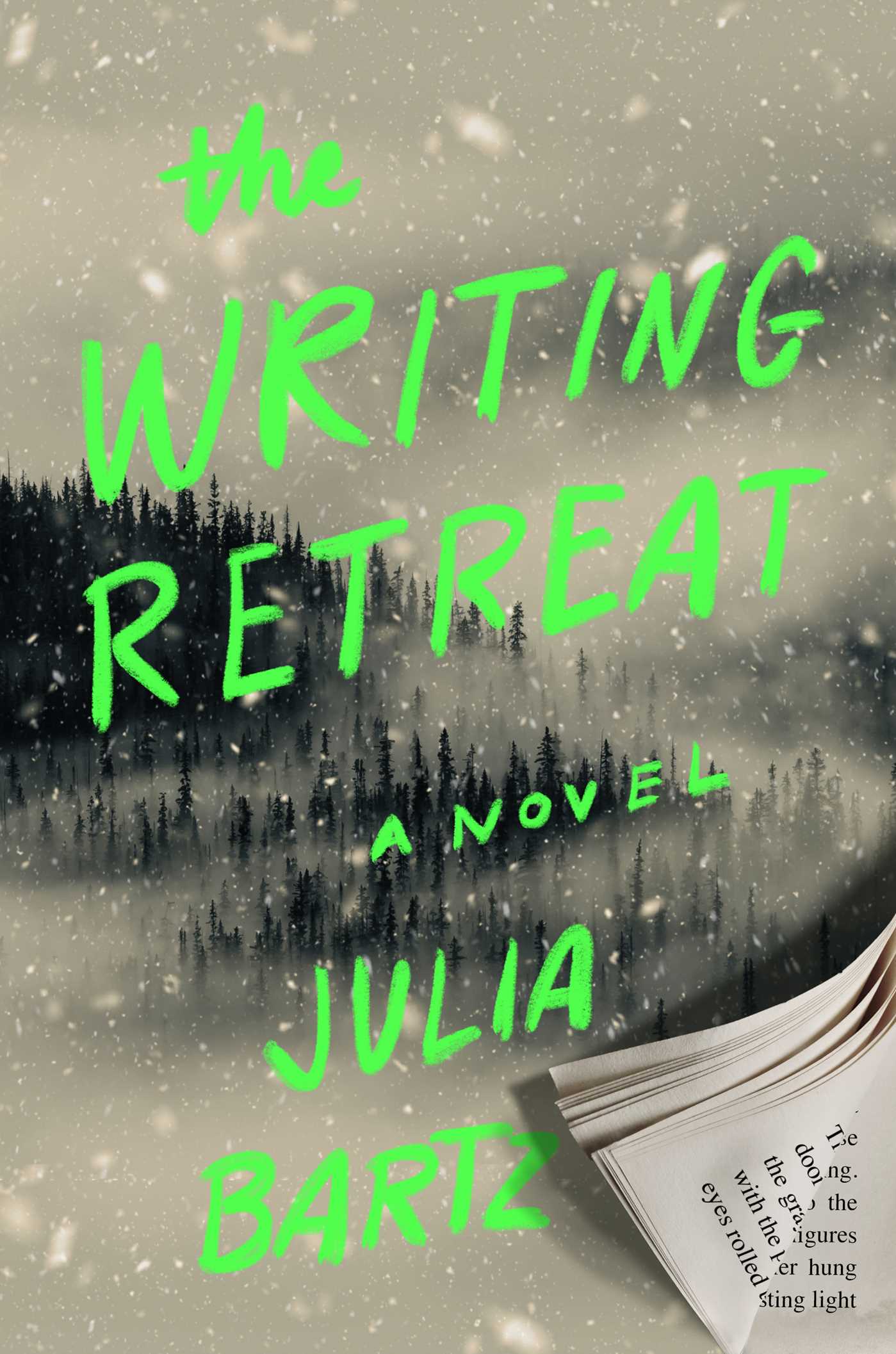
A Review of The Writing Retreat by Julia Bartz
Words By JP Legarte
Published by Atria/Emily Bestler Books on February 21, 2023.
An invitation to a month-long writing retreat with your writing idol? Who wouldn’t jump headfirst into this opportunity? After being at a low point in her life with her job, relationships, and—perhaps worst of all—writing itself, that is exactly what Alex, the main character of The Writing Retreat by Julia Bartz, does. However, when she and the other four female attendees arrive at the grand estate, her writing hero Roza Vallo presents her own shocking plot twist: the five invitees must create and finish an entire novel in the month that they are at her estate. The incentive to win? One million dollars and a life-changing book-publishing deal. However, the introduction of the contest certainly isn’t the only plot twist: there is the complicated, fractured relationship between Alex and her ex-best friend, Wren, another competing writer. Then, when other mysteries arise, Alex finds herself the main character of a story where not everything is as it seems.
Alex’s character is not only well-developed throughout the whole story, but she is also relatable in her struggles and emotions. I say this even as Alex is a white woman in her early 30s, and I’m a 21-year-old Filipino-American man. She is unhappy about her state of life at the beginning of the book, but when she receives the offer to attend this retreat, work on her own creative piece, and meet her lifelong writing idol, her passion for writing is suddenly rejuvenated. We’ve all been through those parts in our lives where we crave something more meaningful, and if a chance appears to devote ourselves fully to our true passions, I know I would jump at such an opportunity just like Alex did.
Readers also witness Alex grow in her independence, self-confidence, and resolve as both a writer and human being. In the book’s first half, Alex is consistently influenced—even controlled—by what others might think of her and her writing, her own expectations of herself, the pressure of the competition, her worries regarding Wren—the list can seem endless. However, when mysteries and threats develop in the book’s second half, Alex slowly begins to think and act of her own accord, even willingly risking her life for others. These struggles and this growth make readers connect with Alex more as the story progresses, making us feel that we’re right there with her.
This book also explores the volatility of human psychology, which is no surprise since Bartz herself is also a practicing therapist. Bartz explores this in multiple ways but especially through Roza’s actions toward the other writers. In addition to the strenuous writing requirements she demands of the writers, she also invites them into one-on-one conversations and convinces them to reveal deep, dark secrets. Such is an example of dangerous power dynamics wherein Roza exerts her influence over these writers who admire and worship her. Relationship dynamics are also explored among the writers. With Alex and Wren trying to win the other writers over, as well as the mind games and backtalking that occur throughout the story, Bartz reveals the human desire to do anything to win and propel oneself forward, prompting the question of whom one can truly trust. While the dangers of power and relationship dynamics are explored within the writing retreat, these dangers can extend to life too, and we wonder what lessons we and the writers learn alongside each other.
One strength of this book is the pacing. We readers quickly realize alongside Alex that “retreat” is a gross misnomer for what comes after. There are four chapters that focus on introducing Alex and her less-than-ideal circumstances and her path to the retreat. While these four chapters take a while to get going, they are essential in setting the foundation for the rest of the book and readers’ expectations of what is to come. Then the rest of the story unravels in Roza’s grand yet mysterious estate—a place that slowly yet effectively cultivates intrigue and suspense through unexplained and perhaps even supernatural events. This buildup culminates in sudden, shocking reveals and fast, action-packed sequences that hook readers until the end, making the slow burn toward the discoveries natural and worthwhile.
This book truly becomes a hell of a ride through the intrigues Bartz seamlessly weaves around Alex. Not only does Bartz craft a flawed main character with whom readers can relate and empathize, but she also crafts a stay-up-all-night type of plot that drags us into the dangers of the writing world and humanity. I charged through this book in three days and ended up reading the remaining 30 chapters in the early hours of that final day. I was that engrossed in discovering what would befall Alex and the other writers and reflecting upon the complexities of being a writer. Ultimately, The Writing Retreat is a thrilling debut novel from Julia Bartz, one that captivates even until the very last word, just like Alex strives to do with her novel in this retreat turned real mystery and danger.